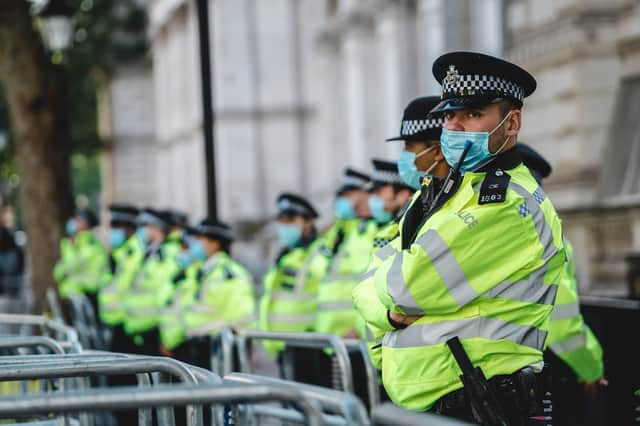Former police chief says ‘people need to be really worried’ about proposed change to law that ‘could threaten free speech’
This article contains affiliate links. We may earn a small commission on items purchased through this article, but that does not affect our editorial judgement.


Fears have grown over the threat posed to free speech by new “rushed” legislation, as the UK Government pushes forward its Police Crime, Sentencing and Courts Bill.
The proposed legislation presents efforts to overhaul the UK justice system, with a raft of new measures that include more powers to tackle non-violent protests considered to cause significant disruption to the public or access to Parliament.
‘People need to be really worried about this’
Advertisement
Hide AdAdvertisement
Hide AdPolice and legal figures have warned about the threat posed to democracy from the new legislation. The Bill is set to have its second reading in the House of Commons today (Mon 15 Mar).
Speaking to Times Radio, Sir Peter Fahy, former Greater Manchester Police chief constable, said there was a “real danger” that rushed legislation could make the job of the police “more difficult”, adding: “People need to be really worried about this.”
“If we’ve learned one thing this weekend, it’s the right to protest, the right to gather, the right to have a voice is fundamental to our democracy, and particularly British democracy,” he continued.
“And bringing in legislation on the back of the Black Lives Matter and Extinction Rebellion demonstrations, rushing that legislation through, putting in some really dodgy definitions which the police are supposed to make sense of…”
Advertisement
Hide AdAdvertisement
Hide AdHuman rights barrister, Adam Wagner, warned that the new powers would call the police to stop protests and cause “serious unease” and create penalties for people who cause “serious annoyance”.
“This would effectively put the current situation where Covid regulations have given police too much power over our free speech rights on a permanent footing,” Mr Wagner added.
How will the new police bill clamp down on protests?
The new bill will boost powers that police can use on so-called static protests, to bring them in line with protest marches. This will mean the police can impose start and finish times on protests, as well as “maximum noise limits”.
Ministers have insisted that the noise limits does not mean blocking the right to protest on the basis of too much noise. However, the bill states it will empower police to impose conditions on a protest where “noise causes a significant impact on those in the vicinity or serious disruption to the running of an organisation.”
Advertisement
Hide AdAdvertisement
Hide AdThe bill will also prevent protests taking place around Parliament if it prevents any vehicle access to the building, and will aim to make it easier to convict protestors for ignoring conditions placed on a protest.